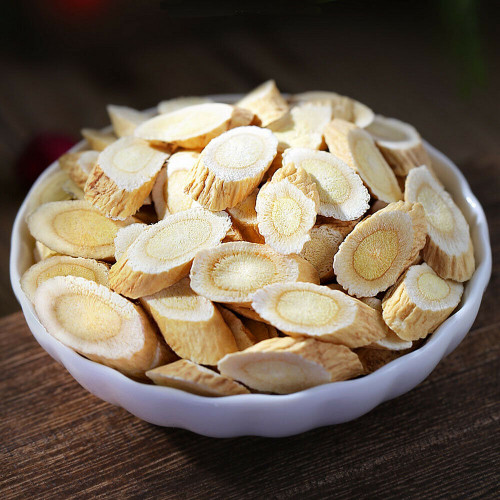Product Overview
Type: Herb
Packaging: Bag
Origin: China
Description:
Also known as rhizoma ligustici chuanxiong, from the point of view of TCM it actually refers to the rhizomes of Ligusticum chuanxiong Hort., a plant in the family Apiaceae. This herb is mainly produced in Sichuan, Guizhou, and Yunnan provinces in China. Usually the excavation of medicinal lovage is in May. After that, it needs to remove the mud, dry them in the sun, and get rid of their fibrous roots. In addition, slice them before the use, in the form of unprocessed or fried with wine.
When it comes to lovage herb, also known as Chuan Xiong in China, many average people, if not all, know it well since this is an herb often used in everyday life. As a matter of fact, grown mainly in Yun-Gui-Chuan plateau, Szechuan lovage root has long been found and used in the ancient days. Now people’s understanding about this amazing medicinal herb mainly comes from the so-called “No. 1 gynecological formula for nourishing blood” – Si Wu Tang (Four Substance Decoction), which is a thousand year old now and still prevalent today.
As mentioned earlier, lovage is a medical and edible herb. It provides nutrition and cures diseases. So, let’s take a look at what health benefits the lovage root can bring to us from a professional view.
Ligusticum’s pharmacological properties are well suited for treating the ailments that typically arise – or are aggravated – during the change of seasons between summer and fall. Autumn is generally a cooler and dryer season than summer, and many people experience illness as a result of this seasonal shift. Allergic and dry coughs, as well as muscle aches, joint stiffness, and a worsening of skin conditions like eczema and psoriasis are common. Though spring and summer are more widely known for triggering an increase in allergy and asthma symptoms, autumn weather can also be inflammatory in this respect. This is where ligusticum is most beneficial.
Over the past few decades, ligusticum has been shown in clinical trials to be useful for especially severe problems relating to the head and neck, not just mild to moderate conditions. Ligusticum can reduce the inflammation associated with cerebrovascular diseases. Because they affect blood supply to the brain, these conditions can lead to serious complications, like ischemic stroke and intracerebral hemorrhage. By calming the inflammation in vital cerebrovascular pathways, ligusticum allows key arteries to function more normally without becoming blocked with dangerous levels of plaque. Ligusticum could help prevent strokes and hemorrhaging in populations – usually older people – that are vulnerable to these potentially fatal events.
Ligusticum is also highly effective at treating skin conditions. This is due to chuan xiong’s categorization as a “blood mover”; put simply, it increases circulation, particularly to the surface of the skin. In one 2012 animal study, researchers found that ligusticum in the form of an essential oil alleviated hypertrophic scarring and its associated tenderness. This type of scarring, which is less pronounced than keloids but nearly as likely to lead to long-term complications, is often itchy and painful. This can be a substantial problem for people who develop hypertrophic scars after surgery. Though more research is needed, the results of this study suggest that constituents of the ligusticum plant can help skin repair itself. This may explain why it is so often prescribed to treat chronic skin problems – particularly those that have itchy, irritating, or painful elements. It is also why ligusticum is used as an envoy and warming herb in custom formulations for the treatment of Raynaud’s disease.
Ligusticum may also be used to treat gynecological issues. Many Chinese medicine practitioners prescribe ligusticum as part of an individualized formula to treat people who struggle with irregular menses or infertility, and is routinely used for problems related to menopause. This may be because of the phytoestrogenic compounds in the root.
Another of ligusticum’s benefits is its potential to prevent and even reverse the heart and liver problems that can arise during menopause. One study showed that this herb effectively prevented cardiovascular complications that had experienced a quick accumulation of visceral adiposity (body fat), as many people do during menopause. Without medical intervention, this period of hormonal flux can lead to non-alcoholic fatty liver disease, heart attack, or stroke.
How to use: 3-10g each time for decoction.
















